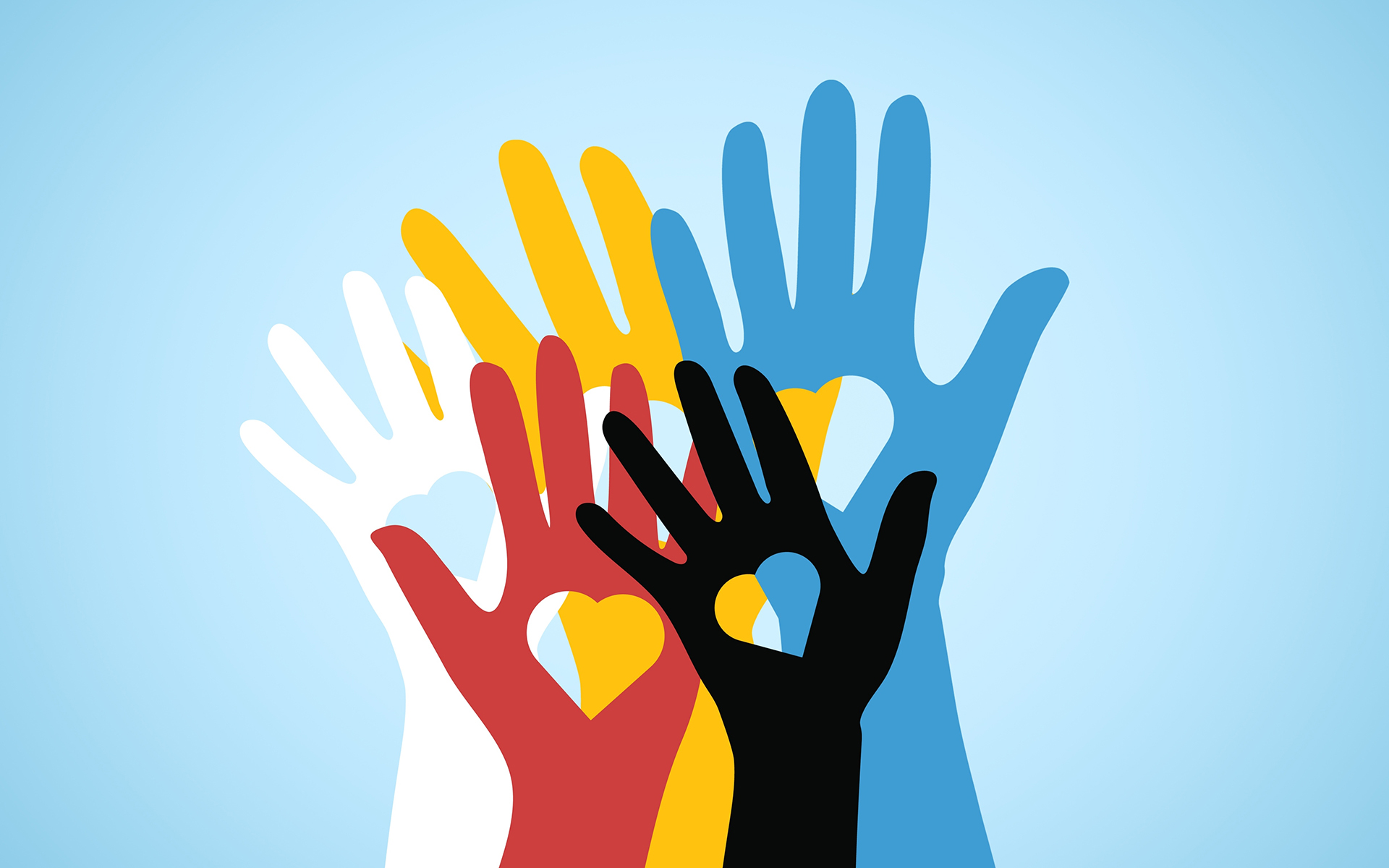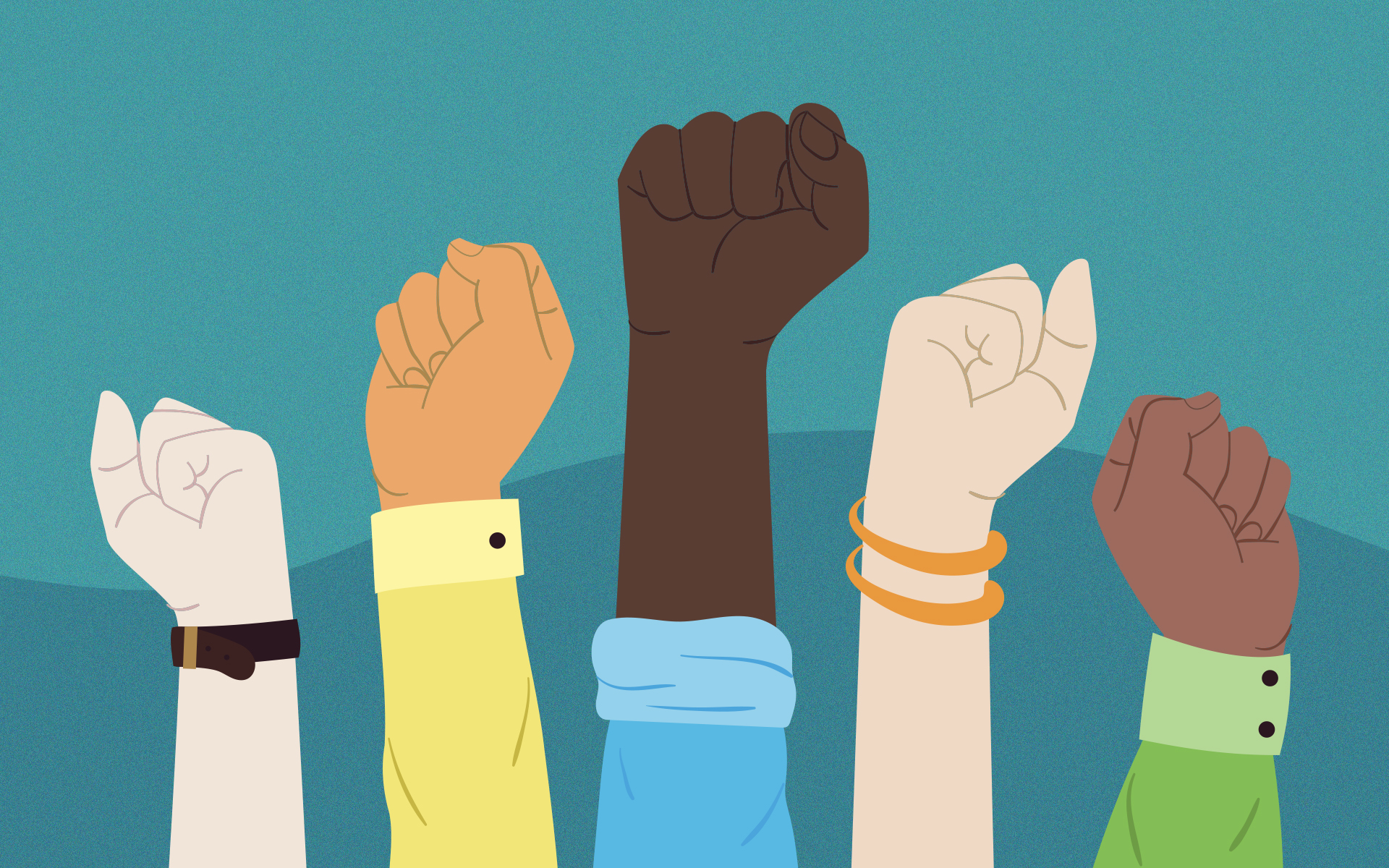If you’re determined to take a real stand against anti-Black racism, there’s plenty of work to be done. Some of that work might start with recognizing that we all have internalized prejudice. And this can perpetuate racist behavior—from the individual level of microaggressions, all the way to ingrained systemic problems, like police brutality and opportunity hoarding.
Don’t be discouraged. The science of implicit biases helps us to understand why this is, and how we can harness mindfulness to help us show up for the work of anti-racism, even when it’s difficult.
Why We’re Biased
Implicit or “unconscious” biases are automatic, internal processes that associate certain characteristics with members of a specific social group. A significant body of research demonstrates that all people have biases, and that our biases unconsciously influence behavior.
This doesn’t mean that unconscious bias is always maladaptive. For example, unconscious biases that activate feelings of love and care toward friends enable us to be kind without consciously trying. But many of our biases are far more harmful. We learn what we are exposed to, and the culture most of us grew up in is quite literally built upon racism, as well as a host of other unjust prejudices.
Understanding Debiasing
A growing body of evidence suggests unconscious biases are so deeply internalized that gaining awareness of them isn’t always enough to make them disappear.
But that doesn’t mean we’re doomed to keep acting out learned biases that go against our deeply held convictions. When I talk about debiasing, I do not mean immediately getting rid of all our unconscious biases. Rather, I mean learning to stop the behaviors that unconscious biases can cause.
A common feature of the more successful Unconscious Bias Training (UBT), or debiasing, programs is that they focus on developing positive ways of interacting—instead of shaming participants about negative ways of interacting, which can backfire by reinforcing stereotypes. It’s more effective to offer tools for recognizing one’s own biases, allowing us to reflect and change our oppressive behaviors. One 2012 study, for example, analyzed an effective habit-training intervention in which non-Black participants were taught to cultivate awareness of biases and concern about their impact. Participants were then given tools to develop less biased habits. The intervention also emphasized seeking out opportunities to learn from Black individuals and from Black media and discourse, to develop more accurate viewpoints. The intervention taught the participants a heightened awareness of their biases and greater concern for discrimination in society.
When we tap in to our attentional habits, over time, we can more accurately perceive where our biases lie and can thus prevent harmful actions stemming from them.
Another vital aspect of habit-based debiasing interventions is that they call for applying the bias-fighting techniques across all life contexts. Programs exclusively targeting workplace bias, while well-intentioned, are problematic by design. The importance of combating unconscious racism persists even in private spaces. Simply debiasing during workshops or work hours is psychologically and ethically insufficient: We also need to build the habits of debiasing on our own time.
When we tap in to our attentional habits, over time, we can more accurately perceive where our biases lie and can thus prevent harmful actions stemming from them. Mindfulness can also help us in developing mindsets, skills, and practices that steadily chip away at our biases.
Debiasing 101
If the functional goals of debiasing were broken down into two steps, it would be these:
- Recognize the bias through noticing our cues or triggers for prejudiced thoughts.
- Act in an unbiased way, replacing biased behaviors.
These two steps may appear simple enough, but in real time, recognizing our biases, shifting out of automatic pilot, and creating new habits can be challenging. (Think about if someone in your office casually tells an offensive joke, which makes others laugh. In that moment, are you able to make the snap decision not to laugh it off, much less explain calmly to your coworker why their joke isn’t funny?)
Debiasing practice is particularly complex because it must be tailored to the individual in order to be effective. We do not all communicate respect and compassion in the same way. Additionally, we all have different exposure to harmful stereotypes and individualized contexts in which prejudices manifest.
Like debiasing, mindfulness entails extended commitment to inward reflection and dedicated practice. It asks us to suspend our judgmental tendencies, allowing our inner curiosity to spark a sense of warmth and kindness that influences how we treat both ourselves and each other.
So, the third crucial step is to practice. We can practice the attentional and emotional management skills involved in recognizing environmental cues, as well as the social wherewithal and cultural competency to respond without negative bias. When unconsciously biased behavior is framed as a habit, it becomes evident that debiasing practice is a new habit, and a long-term commitment. Debiasing asks that we consciously stay motivated by compassion, aware of our emotional terrain, and attentive to biases that we may not usually notice.
All of this points to how mindfulness can help us immensely in our anti-racist practice. Like debiasing, mindfulness entails extended commitment to inward reflection and dedicated practice. It asks us to suspend our judgmental tendencies, allowing our inner curiosity to spark a sense of warmth and kindness that influences how we treat both ourselves and each other.
Research has found that mindfulness meditation can be effective in reducing negative bias activation and the behaviors that stem from it. I’ve collected this non-exhaustive list of the major ways we can connect mindfulness with our personal work of anti-racism.
Five Mindful Habits to Cultivate in Debiasing Practice
1. Emotional Awareness
UBT can bring up unpleasant feelings that are typically repressed for fear of disliking what we see. Though natural, this defense mechanism is quite dangerous. Research indicates that mindfulness can support efforts to gain awareness of negative emotions, like those entangled with white fragility, spurred by unconscious biases. When being mindful, one can recognize pangs of judgment, apathy, or fear, and use them as an alert to scan for biased thoughts and impulses across contexts.
2. Decentering from Negative Thought Patterns
A powerful intention in mindfulness practice is to be able to take a step back from our passing thoughts and emotions, instead of assuming that they are true or that they define us. Research on rumination in depression patients reveals that decentering can be highly effective for combating negative self-referencing thoughts. This illustrates the principle that recognizing thoughts and feelings do not always reflect reality strips them of some of their power. When it comes to biased thoughts, self-reflection is much easier when we embrace the idea that our thoughts about ourselves and others are temporary and open to re-examination.
3. Loving-Kindness
Loving-Kindness Meditation can target some of the psychological mechanisms involved in perpetuating unconscious biases. When negative emotions come from learned stereotypes, they can elicit moral intuitions and gut feelings that are not, upon reflection, in line with our deeper dedication to fairness and equity. As just one example, a 2014 study demonstrated that loving-kindness practices can significantly reduce unconscious bias toward people in marginalized social groups. A primary mechanism the meditation targets is general feelings of connectedness, which make biases less apt to activate.
4. Mindful Media Consumption
As an extension of mindful action, the media we choose to consume can help to combat unconscious bias, while facilitating the cultivation of greater understanding and respect for those facing oppression. Results of the 2012 study mentioned earlier suggest that rather than neglecting, oppressing, or appropriating the products of Black culture, we must tune in to the variety of perspectives they offer. View television and film created by Black people, listen to interviews and podcasts with Black hosts and/or guests, and read literature by Black authors.
5. Mindful Listening and Speech
If you are motivated to use your voice to combat bias, so much the better—but we need to be conscientious that we are supporting, not distracting. In both debiasing and anti-racist work, practicing deep listening is crucial. Not only is it respectful, it helps to prevent us from (even accidentally) distorting the words and messages of Black people when we work to amplify their voices.
Notably, all of these can be pursued alone, or together with non-Black friends and family—but it should not be Black people’s burden to educate folks who do not experience anti-Black racism.
Mindfulness can help us to act with more intentionality in general. White people should be mindful not to contribute to “white noise,” which is unproductive content that takes attention away from more important messages. And when we err, we must practice humility and willingness to adapt our views and behavior.
Unconscious bias is just one cog in the massive mechanism of white supremacy. As Jenée Johnson, program innovator of mindfulness, trauma and racial equity reminds us, “Compassion comes from owning that and sitting with the discomfort of that, so we can then generate something different.” The practice of debiasing, supported and deepened by mindfulness practice, can help us apply knowledge about institutionalized racism in order to work toward equity, both in our institutions and our personal practices. Recognizing prejudice in ourselves can be painful and upsetting, but mindfulness offers us tools for holding ourselves accountable and moving forward to continue combating our own bias with patience and compassion.
read more
Working with Bias in the Heat of the Moment
As we work toward building a more compassionate world, we must find the courage to face our biases on the spot. Here are four steps to consider.
Read More
Using Mindfulness to Break Racial Bias
Anu Gupta, founder and CEO of BE MORE with Anu, offers five portable compassion-based tools to face and transform racial bias at work and in day-to-day life.
Read More
A Conversation on Mindfulness, Bias and Racial Justice
It’s difficult to have a conversation about racism, privilege and fragility without things getting heated. In this Point of View Podcast, experts weigh in on the role mindfulness plays in understanding and navigating racial justice.
Read More










